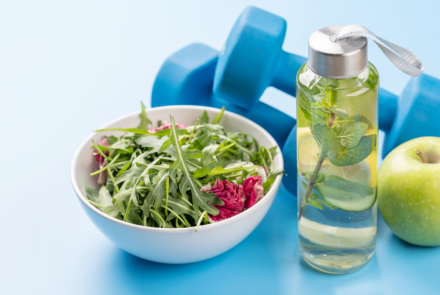Most mothers in the United States want to breastfeed and try to do so, according to the Centers for Disease Control and Prevention. By six months, a little more than half of mothers are still breastfeeding. While rates have continued to rise, many mothers are not meeting the American Academy of Pediatricians’ recommendations to exclusively breastfeed for a baby’s first six months. Debra Gilhooly, a nurse practitioner at OBS-GYN of Rockland, says new mothers who stop breastfeeding often do so because of a lack of support at home.
“In many other cultures, new mothers have an extended support network of family members who can help teach them about breastfeeding,” Gilhooly says. “In the United States, women often don’t have that support when they go home. They may find breastfeeding difficult or painful, and if they don’t receive help they may just give up.”
Gilhooly encourages new mothers to enroll in a breastfeeding class at their hospital, or to ask to speak with the hospital’s lactation consultant. “Breastfeeding is natural, but it’s a learned response, and there are tips and tricks for making it easier,” she says. “A class or a consultant can show a new mother how to position the baby and how to get the baby’s mouth open wide enough to latch on.”
Breastfeeding Benefits
There are many benefits of breastfeeding for both the baby and mother, according to Gilhooly. Breast milk contains a mother’s antibodies, which can keep the baby healthy. Research shows that breastfed babies have lower risks of many conditions, including asthma, ear infections, constipation, diarrhea, and respiratory infections. “It’s the perfect food for the baby,” she says. While the recommendation that babies be exclusively breastfed for the first six months is ideal, Gilhooly says babies can still benefit from breastfeeding for shorter amounts of time.
Breastfeeding helps a new mother’s uterus contract so she recovers from childbirth more quickly. It also decreases a woman’s lifetime incidence of breast and ovarian cancers. The act of breastfeeding is also important because it helps a new mother bond with her baby, Gilhooly notes.
Women who have had a C-section may find it more difficult to breastfeed, because of the discomfort of their abdominal incision. Getting the help of a lactation consultant is especially important for these women, Gilhooly says. “The consultant can make sure they are comfortable while breastfeeding, and can ensure the pain medication they are taking is safe for the baby.”
Common Breastfeeding Questions
Common questions Gilhooly hears about breastfeeding from new mothers include:
Q: Can I still breastfeed when I’m sick?
A: In most cases, it is safe, except for very serious illness. If you’re taking medication, check with your provider first to make sure it’s safe for the baby.
Q: Can I drink alcohol while I’m breastfeeding?
A: There’s no real safe level of alcohol for a baby. However if a woman wants an occasional drink, she should wait two to three hours after consuming alcohol before breastfeeding.
Q: What should I eat while I’m breastfeeding?
A: You can increase your caloric intake by 400-500 calories a day while you’re breastfeeding. Eat plenty of protein, whole grains, and fresh fruits and vegetables. Get plenty of fluids – at least 3 liters (12 cups) daily.
Q: Is there anything I shouldn’t eat or drink aside from alcohol?
A: Avoid sugar drinks and limit caffeine intake. Caffeine can agitate the baby and interfere with their sleep. If you notice your baby is fussy after you eat a certain food—such as something gas-producing like broccoli or spicy food, try to stay away from that food for a couple of weeks and see if it makes a difference in the baby.
A Great Opportunity
All mothers should give breastfeeding a try, Gilhooly concludes. “It’s a great opportunity for the mother and baby to bond,” she says. “The more a woman knows about breastfeeding before she starts, the better. Asking for help is key. The ultimate goal is a healthy, happy mother and baby.”






